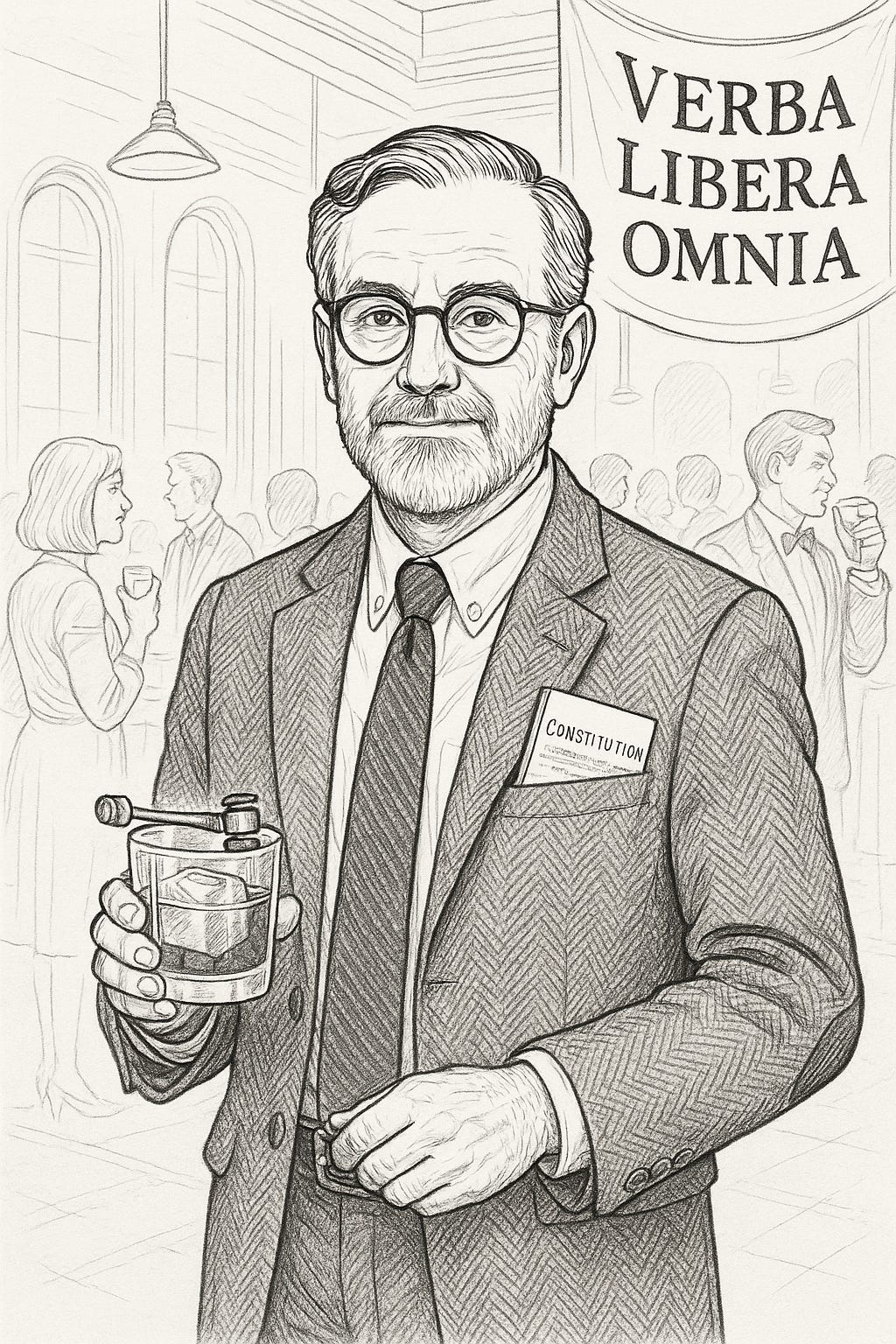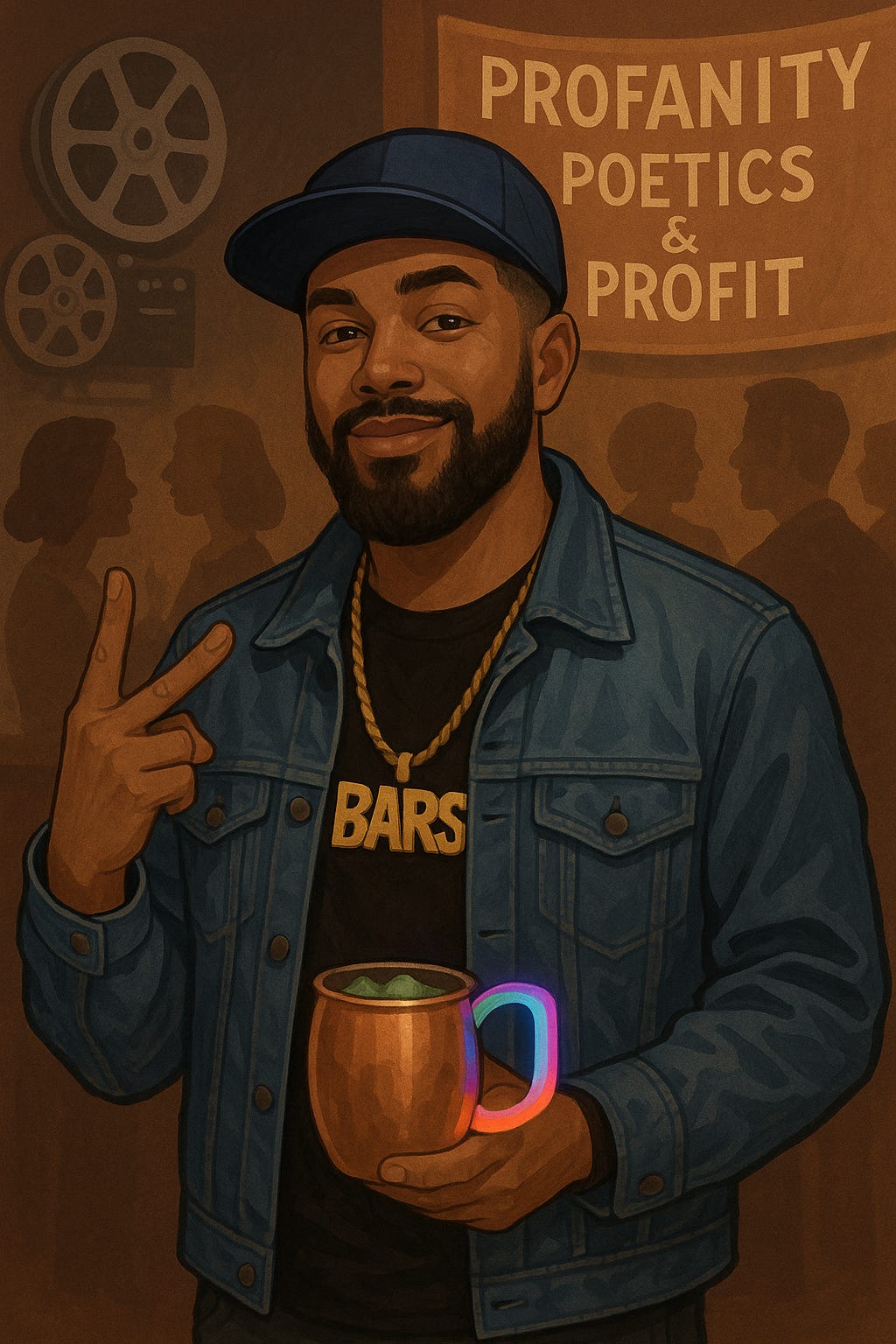(Scene: A sunlit lecture hall at California College. Rows of under-caffeinated undergraduates tap on laptops as Professor Vera Langston, reigning champion of the National Pun-Off and chair of sociolinguistics, strides to the podium clutching a coffee mug labeled “World’s Okayest Morphologist.”)
Professor Langston: Good morning, lexicon lovers and semantic spelunkers! Today we tackle a single lexical item so radioactive it practically needs a haz-mat suit. You know the one—“the n-word.” Yes, I’m not going to pronounce it; if HBO wants gratuitous language they can hire Samuel L. Jackson. My syllabus, my rules.
(Student in back raises hand.)
Student: But Professor, why study a word we’re not allowed to say?
Professor Langston: Excellent question, Future Graduate-School Dropout Number Twenty-Three! Think of it like studying uranium: we don’t handle it bare-handed, but we must understand the physics or else Chernobyl happens again—only this time during a TikTok live stream.
So, five major schools of thought. I will present them as competing faculty members at a linguistics cocktail party. Picture each sipping academic sherry while dropping footnotes like confetti.
1. Dr. Abolition (Department of Historical Harm) She arrives wearing a sash that reads “Never Again.” Her view: the slur is linguistic napalm—burned villages, lynching trees, Jim Crow. Retire it to the dusty archive alongside “thou” and “verily,” but with less Shakespearean charm. She quotes civil-rights giants and warns that every repetition rips open scar tissue faster than your ex texting “u up?”
2. Professor Reclaimer (Center for Intracultural Semantics) Strutting in with a boom box, an extra arm, and vintage hip-hop vinyl, she argues, “Our community flips the slur, turns poison into punch line, and denies racists the monopoly.” For her, insider usage = empowerment. Outsider usage = please see yourself to the ejector seat.
3. Dean Libertus FreeSpeechington III (School of Unfettered Expression) Picture a pocket Constitution peeking from his tweed. He proclaims, “Banning words today, banning books tomorrow! Also, who ate my artisanal hummus?” He agrees the term is vile, yet fears forbidding it turns the First Amendment into Swiss cheese—or worse, vegan cheese.
4. Dr. Contextual-Pedagogical (College of Delicate Classroom Maneuvers) She hands out trigger warnings the way Oprah hands out cars: “You get a warning, you get a warning!” She teaches the word only when reading Frederick Douglass, issues content alerts, then whispers it once like a Victorian admitting she has ankles.
5. Filmmaker-in-Residence Artie “Bars” McRhymes (Institute of Cultural Production) Baseball cap, gold chain, Cannes nomination. He says, “Art imitates life—sometimes with explicit lyrics. Ticket sales, baby.” Yet even he confesses his latest album uses the slur less because—surprise—great rhymes exist beyond taboo vocabulary. Who knew?
Now, the comparative analysis:
• Historical injury versus linguistic self-defense
• Freedom to offend versus freedom from trauma
• Pedagogical honesty versus classroom harm
• Artistic authenticity versus stereotype supermarket
Empirical tidbits, class:
A) Psychologists show that hearing the slur spikes stress hormones in targeted groups faster than finals week caffeine.
B) Policing who “may” say it based on ancestry leads to awkward “23andMe” party tricks.
C) English has retired plenty of insults—ever call someone a “scobberlotcher” lately? Exactly.
Therefore, says Dr. Langston (that’s me, your humble narrator), the weight of evidence tips toward graceful retirement. Not legal banishment—historians can still quote primary sources; comedy scholars can still dissect Richard Pryor. But the slur’s days as linguistic small talk or chart-topping hook? Let’s give it the gold watch and a quiet corner office in the museum of linguistic mistakes.
(Student at front: raises hand again.)
Student: Professor, isn’t that censorship?
Professor Langston: No more than choosing not to invite your ex to Friendsgiving is censorship. It’s called collective etiquette. Language evolves; we don’t greet people with “Hail and well met” unless we’re at a Renaissance faire eating turkey legs the size of dachshunds.
Final takeaway—memorize this for the exam and, frankly, for life: Communication is a social contract. When one syllable carries centuries of terror like a backpack full of anvils, maybe it’s time to set it down and walk lighter.
Now, for homework: Craft a euphemism for the world’s most disgusting vegetable that is still less offensive than the n-word. Spoiler: any vegetable works. Class dismissed.
(scene)









